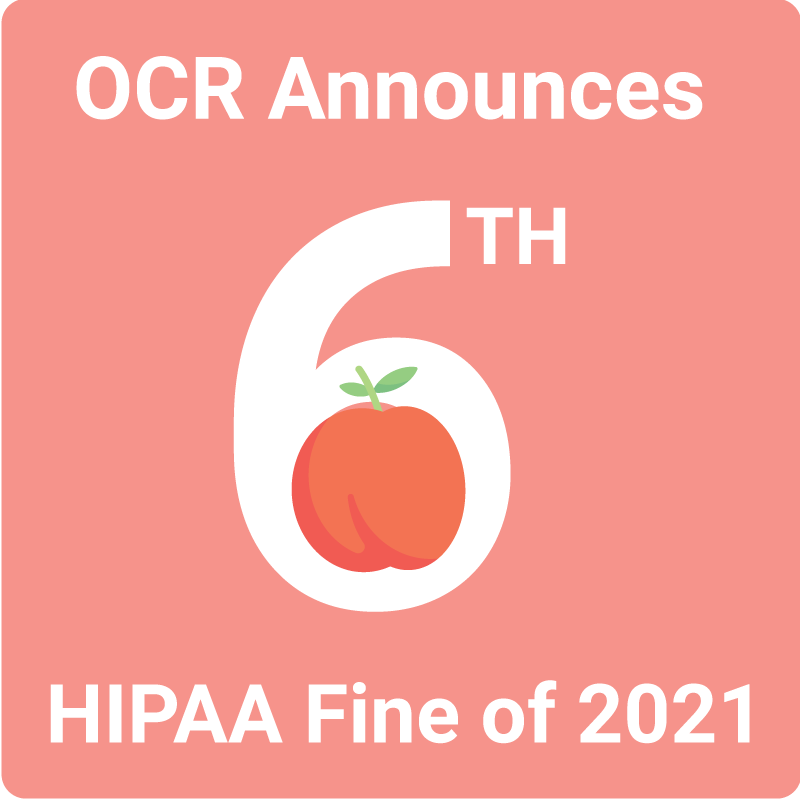May 25, 2021 No matter the time of year, HIPAA enforcement never goes out of season and we have today’s announcement from the Office for Civil Rights (OCR) to prove it. The latest HIPAA settlement and sixth of the year involves Peachstate Health Management, LLC – a Clinical Laboratory based out of Georgia who provides diagnostic and laboratory-developed tests. The violation stemmed from Peachstate’s failure to meet several of the HIPAA Security Rule requirements and led to a $25,000 fine and 3 year corrective action plan issued by the OCR – a result that probably didn’t leave the organization feeling too peachy afterall. So what happened? Well it may seem like comparing apples to oranges when looking at what triggered this settlement versus the ones we’ve recently seen centered around patient right of access violations and large cyberattacks. But the latest violation resulted from a variety of different and very relevant factors from data breaches to telehealth and business associates with systemic noncompliance at its core. It started back in 2015 after the U.S. The Department of Veterans Affairs (VA) reported a data breach involving their telehealth services program managed by its business associate, Authentidate Holding Corporation (AHC). A year later, the OCR initiated an investigation into the business associates’ compliance program where they uncovered that AHC and Peachstate had earlier entered into a reverse merger in January of 2016 whereby AHC acquired Peachstate. As a result of this finding, the OCR opened up another compliance review into Peachstate and found that the clinical laboratories were ripe for the picking in their ongoing noncompliance in the following key areas: In addition to the fine and extensive corrective plan that the OCR issued, their response to the incident and message for other healthcare organizations is the cherry on top and should not be taken lightly. “Clinical laboratories, like other covered health care providers, must comply with the HIPAA Security Rule. The failure to implement basic Security Rule requirements makes HIPAA regulated entities attractive targets for malicious activity, and needlessly risks patients’ electronic health information,” said Robinsue Frohboese, Acting OCR Director. “This settlement reiterates OCR’s commitment to ensuring compliance with rules that protect the privacy and security of protected health information.” So in other words – the only way to avoid being the low-hanging fruit for a HIPAA violation is ensuring that your healthcare organization has met these basic standards that Peachstate was missing. And while an apple a day might keep the doctor away, this latest settlement is yet another example of why having a complete compliance program in place is so essential to keeping your practice away from OCR scrutiny and avoiding a HIPAA fine like this one.
